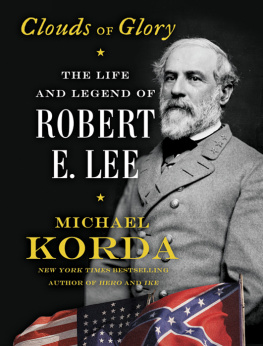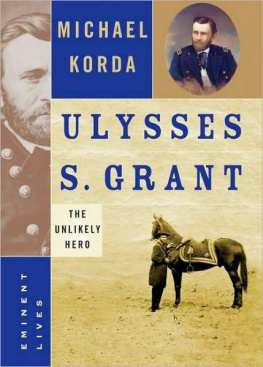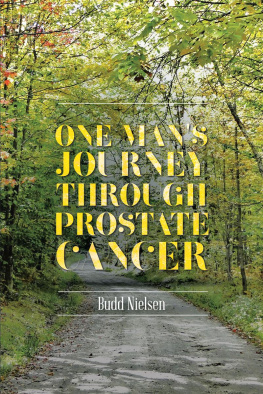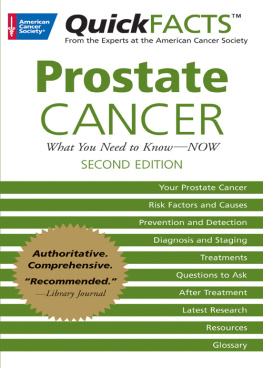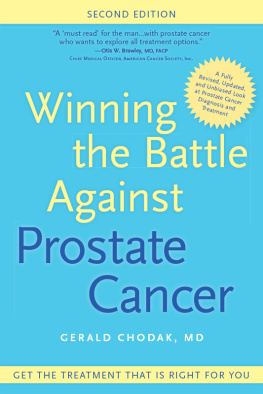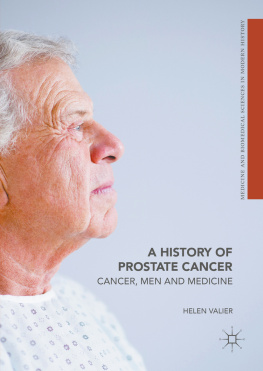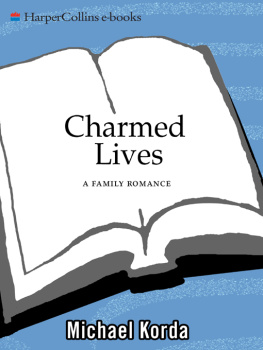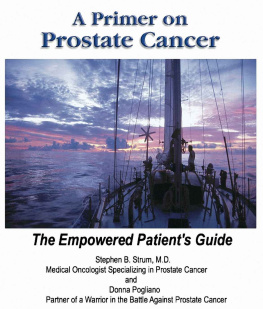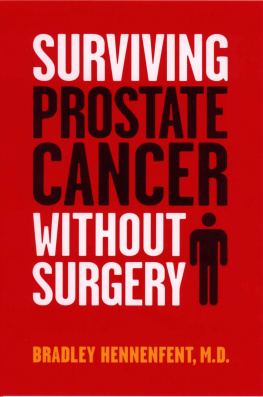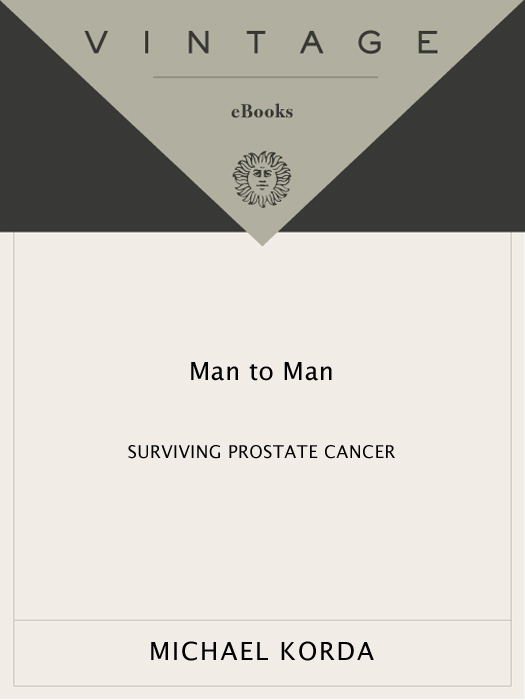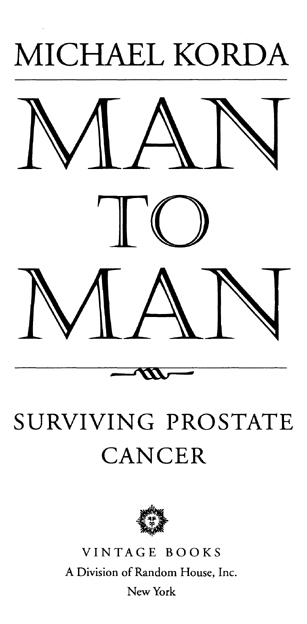Acclaim for Michael Kordas
MAN TO MAN
Bravo to the courageous Mr. Korda. A writer of great skill, Korda grips the reader with a step-by-step, unblinking account of his own personal battle. Husbands and wives who read this book together will come away strengthened by its message.
Gail Sheehy
Michael Korda has performed a medical public service. I was stunned by his candor and moved by his courage.
Dominick Dunne
The best book about prostate surgery that I have ever read. Korda brilliantly takes you through the whole process in a very worthwhile read.
Larry King, USA Today
Necessarily frank and undeniably fascinating. Extremely valuable for its blunt candor, no-nonsense advice and message of survival.
Seattle Times
A book for all men who are in or are approaching their prostate years, an unflinching guide. Korda knows how to put his message across in a rip-snorting, page-turning narrative style.
Cleveland Plain Dealer
Man to Man gets down to the emotional and psychological core of prostate cancer. What is most affecting is Kordas honesty.
Hartford Courant
A frank, moving, exceptionally well-written account by a prostate cancer survivor brave enough to write freely about [the] disease.
Houston Chronicle
Korda writes as no one else has. An important book, one that should be in the waiting rooms of urology practices.
Detroit Free Press
Singularly useful. Korda is a pro at storytelling.
Philadelphia Inquirer
Few have explored the scarred terrain where [the body and the spirit] link up with more wit, more intelligence, and more grace than Michael Korda has in this absorbing book.
Larry McMurtry
Michael Korda adds to a distinguished legacy of writers who have broken barriers. [His] book is eloquent in its own straightforward way.
Newark Star-Ledger
Korda deserves credit for his candor.
Washington Post
Korda is on a mission to drag prostate cancer into the spotlight. Man to Man succeeds because it is so very personal and detailed.
St. Petersburg Times
Kordas book stands apart from most in the survivor genre. Man to Man is a frank and singularly useful guide.
Albuquerque Journal
Man to Man is a grueling, funny, fascinating and, above all, valuable account.
Palm Beach Post
Michael Korda
MAN TO MAN
Michael Korda is the editor-in-chief of Simon & Schuster as well as the author of an acclaimed book about his family, Charmed Lives; several successful novels; and the number-one bestseller Power. He lives with his wife, Margaret, in Dutchess County, New York.
A LSO BY M ICHAEL K ORDA
The Immortals
Curtain
The Fortune
Queenie
Worldly Goods
Charmed Lives
Success!
Power!
Male Chauvinism
FIRST VINTAGE BOOKS EDITION, MAY 1997
Copyright 1996, 1997 by Success Research Corporation
All rights reserved under International and Pan-American Copyright Conventions. Published in the United States by Vintage Books, a division of Random House, Inc., New York, and simultaneously in Canada by Random House of Canada Limited, Toronto. Originally published in the United States in hardcover by Random House, Inc., New York, in 1996.
Authors note: In order to protect the medical privacy of some of the men whose stories appear in this book, I have changed their names. Arthur, Bill, Elliott, and Seymour are pseudonyms. MK
The Library of Congress has cataloged the Random House edition as follows:
Korda, Michael.
Man to man: surviving prostate cancer / Michael Korda.
p. cm.
eISBN: 978-0-307-80587-4
1. Korda, Michael.Health.
2. ProstateCancerPatientsUnited StatesBiography.
I. Title.
RC280.P7K67 1996
362.19699463dc20
[B] 95-53314
Random House Web address: http://www.randomhouse.com/
v3.1
FOR MARGARET
Without whom
ACKNOWLEDGMENTS
I am completely responsible for any errors in this book, but I would like to thank Avodah Offit, M.D., and Lenard Jacobson, M.D., for their careful reading and correction of the manuscript.
I owe far too much to far too many people to list them all, but I would particularly like to single out Dennis OHara, the organizer of the Poughkeepsie prostate-cancer group; Rebecca Head, for her unfailing support over more years than either of us would care to admit; Chuck Adams, for taking on his shoulders the burden of my work during my recuperation; Richard and Roxanne Bacon, Dot Burnett, and Emory Smith, who did so much to help my recovery; Cher, for her unfailingly positive long-distance support; Larry McMurtry, for always being there despite problems of his own; Rod Barker and Peter Forbath, for friendship above and beyond the call of duty; and Carol Bowie, for her unflagging retyping of the manuscript.
CONTENTS
PART ONE

THE SILENT KILLER
E VERY YEAR MORE THAN 200,000 A MERICAN MEN ARE TOLD THEY have prostate cancer. Nearly 50,000 of them die, many of them needlessly.
Prostate cancer is the male equivalent of breast cancerthe numbers are almost identicalthough it receives considerably less attention. Fashion models are photographed wearing designer T-shirts with a target printed over their breasts to remind the public about the dangers of breast cancer, but there is no equivalent campaign for men. Few black-tie dinners or theater benefits are given in aid of prostate-cancer research. Rather like the prostate itself, prostate cancer remains stubbornly invisible.
It resembles breast cancer in ways that go beyond the merely statistical. Just as breast cancer is the biggest fear of most womenformerly unspoken, but no longerprostate cancer is the biggest fear of most men. It carries with it not only the fear of dying, like all cancer, but fears that go to the very core of masculinityfor the treatment of prostate cancer, whatever form it takes, almost invariably carries with it well-known risks of incontinence and impotence that strike directly at any mans self-image, pride, and enjoyment of life, and which, by their very nature, tend to make men reticent on the subject.
It is precisely this reticence which makes prostate cancer such a deadly, silent scourge. Women talk to each other about their bodies; men do notstill less so when their ability to function sexually is at risk.
As a result, men who have prostate cancer all too often feel themselves isolated at the very first mention of the bad news, unable to share their worst fears with anybody. To the fear, which is perfectly natural, of death, loss of virility, and incontinence is therefore added a dreadful loneliness; for unlike women, who tend to bond together in distress, mencertainly in the face of this diseasetend to retreat into silence. For many of them, prostate cancer is a private battle, and because of that, it is all too often lost.



